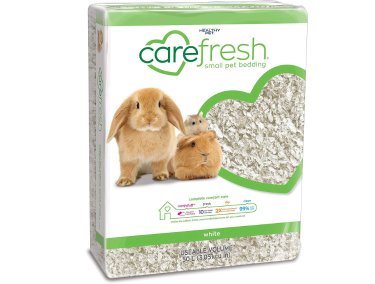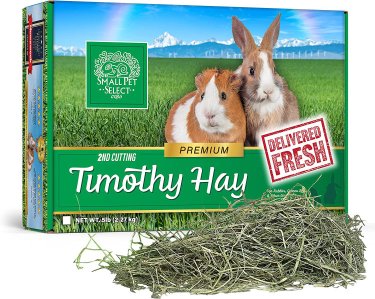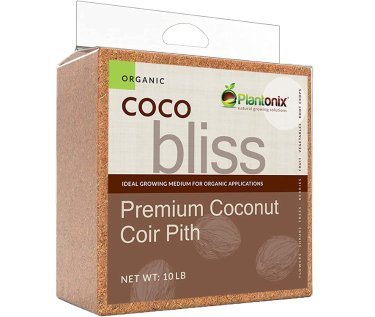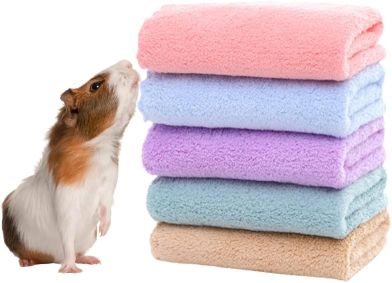Choosing the right bedding for your gerbil is an essential aspect of pet ownership that often goes overlooked. Your pet’s bedding serves not just as a comfortable place for rest, but also as a playground, a place to burrow, and a means to absorb waste. The wrong type of bedding can lead to discomfort, poor health, or even injury for your small furry friend. Therefore, it’s crucial to understand the various types of bedding available and how they align with a gerbil’s specific needs.
When purchasing gerbil bedding, there are several general factors to keep in mind. The bedding should be safe and non-toxic, provide comfort, allow for easy burrowing, efficiently absorb waste, and be easy to clean and replace. Moreover, it should be dust-free to prevent respiratory issues and avoid any materials that could potentially harm your pet if ingested. This article aims to guide you through the best options in the market, ensuring your gerbil has a safe and comfortable environment to thrive in.
What Gerbils Need in Their Bedding
Understanding the specific needs of your gerbil is key to providing the best bedding for them. The three primary considerations when choosing bedding are safety, the ability to support burrowing and nesting, and efficient waste absorption.
Safety and Comfort: The health and comfort of your gerbil should be a top priority. The bedding material should be dust-free to avoid respiratory problems. Additionally, the texture of the bedding should be soft to prevent injury to the delicate skin of your gerbil. Non-toxic materials are a must, as gerbils may occasionally ingest their bedding.
Burrowing and Nesting: Gerbils are natural burrowers. In the wild, they build complex tunnel systems for shelter and protection. Therefore, their bedding should be deep enough and have the right consistency to support tunneling. It should also hold its shape well to prevent burrows from collapsing. Besides, the bedding should be nest-friendly, allowing your gerbil to create a cozy place to sleep and rest.
Waste Absorption: Gerbils, like any other pets, will relieve themselves in their environment. A quality bedding material should effectively absorb urine and control odors, helping to keep the enclosure clean and odor-free. It’s also crucial that the bedding is easy to spot clean, which refers to removing soiled bedding without having to change the entire substrate.
By focusing on these key needs, you can ensure that your gerbil’s habitat is not only comfortable but also promotes natural behaviors and maintains hygiene.
Different Types of Gerbil Bedding
When it comes to bedding materials, there are a wide variety of options. Here, we delve into some common types, along with their pros and cons:
Paper Bedding
Description: Paper bedding is a common choice made from recycled, non-toxic paper. It comes in various forms such as shredded paper, paper pellets, or crumbled paper.
Pros: Paper bedding is safe, soft, and comfortable. It’s excellent for burrowing, dust-free, and highly absorbent. It’s also available in a variety of colors, and many brands are environmentally friendly.
Cons: Some types of paper bedding may not hold burrows well. Certain brands may be less absorbent than others, necessitating frequent changes. Additionally, colored paper could contain dyes that might not be suitable for all gerbils.
Wood Shavings
Description: Wood shavings, including aspen or kiln-dried pine, are widely used for small pets.
Pros: Wood shavings are natural, cozy, and great for burrowing. They also have good odor control.
Cons: Some woods, like cedar or raw pine, can be harmful to gerbils due to phenols, which can cause respiratory problems and liver damage. Therefore, it’s essential to choose the right type of wood shavings. They can also be somewhat dusty.
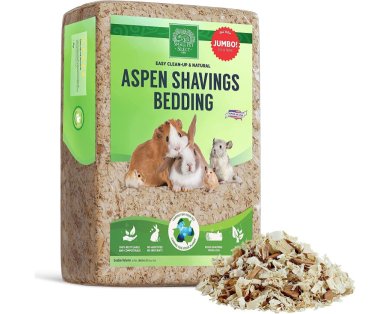
Hay or Straw
Description: Hay or straw can be used as bedding, though they’re typically better suited for feeding or supplementing other beddings.
Pros: Hay or straw is natural and safe for gerbils to chew. It can also add structural support to tunnels.
Cons: Hay and straw are not very absorbent and don’t control odor well. They can also be dusty and might harbor mites or other parasites if not properly treated or stored.
Corn Cob
Description: Corn cob bedding is made from the ground-up cores of corn cobs. It’s typically available in granules or chunks.
Pros: Corn cob bedding is natural, absorbent, and helps control odor. It’s also heavier than other beddings, which can help keep it in the cage.
Cons: Corn cob bedding can be rough and is not ideal for burrowing. It can also mold quickly if it becomes damp, and if ingested in large amounts, it can cause digestive blockages.
Coconut Fiber Bedding
Description: Also known as coir, coconut fiber bedding is made from the husks of coconuts.
Pros: Coconut fiber bedding is eco-friendly, soft, and comfortable. It’s great for burrowing, absorbs well, and resists mold and bacteria.
Cons: It may be more expensive than other bedding types. Also, it can sometimes be harder to find, as it’s not as commonly used.
Cloth Bedding
Description: Cloth bedding involves using pieces of fabric, like fleece, in your gerbil’s enclosure.
Pros: Cloth bedding is soft, dust-free, and reusable, making it a cost-effective and eco-friendly option.
Cons: Cloth is not suitable for burrowing and doesn’t absorb as well as other materials. It requires regular washing, and some gerbils may chew it, posing a risk of ingestion and potential health problems.
Each type of bedding has its own benefits and drawbacks, and the best choice depends on the specific needs and behaviors of your gerbil, as well as your personal preferences and budget.
Top 5 Gerbil Bedding Brands on the Market
Choosing the right brand for your gerbil’s bedding can be overwhelming with so many options available. Here, we have compiled a list of the top 5 brands on the market to help you make an informed decision:
Carefresh
Description: Carefresh is a popular brand that offers paper bedding made from raw, natural fibers. Their bedding is highly absorbent and great at odor control.
Pros: Carefresh bedding is dust-free, eco-friendly, and safe for gerbils. It’s also available in different colors and sizes.
Cons: It can be more expensive than other brands, and some users have reported that it doesn’t hold tunnels as well as some other types of bedding.
Kaytee
Description: Kaytee offers a variety of bedding options, including Clean & Cozy paper bedding and Soft Granule Blend made from wood fibers.
Pros: Kaytee beddings are super soft and comfortable, making them great for gerbils. They are highly absorbent and provide excellent odor control.
Cons: Some varieties might be a bit dusty, and they can be on the pricier side.
Small Pet Select
Description: Small Pet Select is a brand known for its natural, unbleached paper bedding that’s soft and absorbent.
Pros: Their bedding is dust-free, encourages burrowing, and has good odor control. It is also biodegradable and compostable.
Cons: It can be relatively expensive, and some users find that it doesn’t hold burrows as well as other brands.
Vitakraft
Description: Vitakraft offers Fresh World Strength Crumble Bedding made from recycled paper. It boasts up to 14 days of odor control.
Pros: Vitakraft bedding is dust-free, biodegradable, and highly absorbent. It’s also baking soda-free, which is safer for small pets.
Cons: Some users report that it doesn’t clump well, making spot cleaning a bit more difficult. It also may not hold tunnels as well.
Healthy Pet
Description: Healthy Pet offers the CritterCare line of paper bedding that’s colorfast, ensuring the colors won’t run and stain your pet’s enclosure.
Pros: CritterCare bedding is soft, absorbent, and good for burrowing. It also provides long-lasting odor control.
Cons: It can be more expensive than other brands. Some users also report that it can be a bit dusty.
Each brand has its own strengths and weaknesses, and the best one for you will depend on your specific needs and preferences. Always ensure that whichever brand you choose, the bedding should be safe, comfortable, and suitable for your gerbil’s needs.
Essential Tips for Maintaining and Cleaning Gerbil Bedding
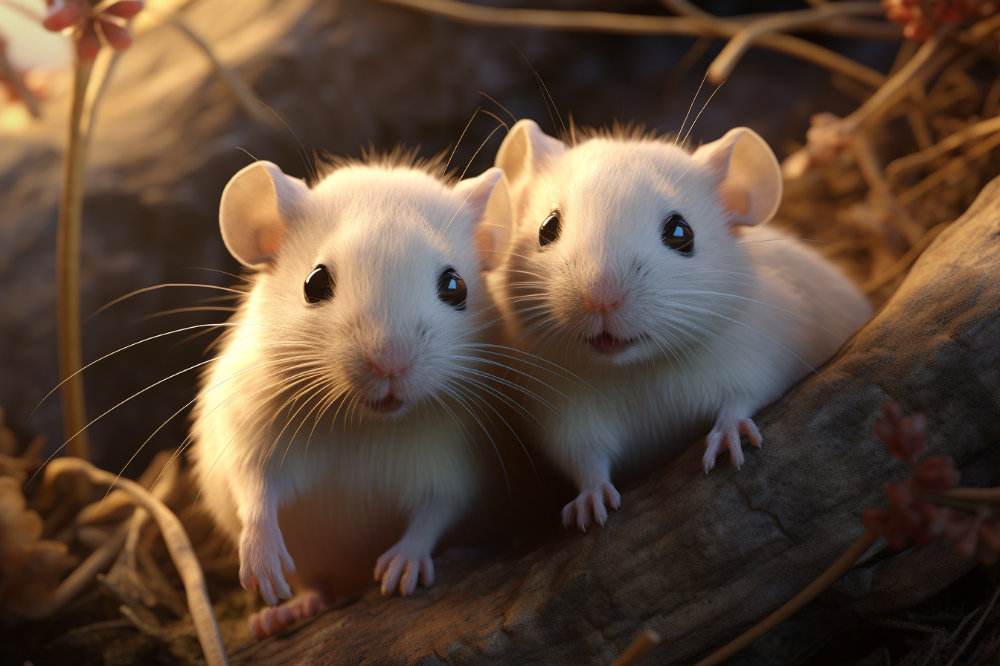
Proper maintenance and cleaning of gerbil bedding are fundamental to ensuring a healthy and comfortable environment for your pet. Here are some guidelines to follow:
Frequency of Cleaning:
Typically, a full change of gerbil bedding should be done every 1-2 weeks, depending on the size of the enclosure, the number of gerbils, and the type of bedding used. However, spot cleaning, which involves removing soiled bedding and replacing it with fresh bedding, should be performed daily. This helps control odors and keeps the cage clean without causing stress to your gerbil from a full habitat change.
Proper Cleaning Techniques:
For a full cage cleaning, follow these steps:
- Remove your gerbil and place them in a secure, temporary habitat.
- Dispose of all the old bedding material and any leftover food or waste.
- Clean the cage with a pet-safe cleaner or a mild soap and warm water. Scrub well to remove any residue or buildup.
- Rinse the cage thoroughly to ensure no soap or cleaning product remains.
- Dry the cage completely before adding fresh bedding to prevent mold growth.
- Add a generous layer of fresh bedding, ensuring there is enough for your gerbil to burrow.
- Move your gerbil back into the cleaned habitat.
Signs to Look for Indicating That the Bedding Needs to be Changed:
Even with regular spot cleaning, full bedding changes are necessary. Signs that it’s time for a bedding change include:
- Persistent Odor: If there’s a strong or foul smell coming from the cage despite spot cleaning, it’s time to change the bedding.
- Dampness: Bedding that remains damp, whether from water bottle leaks or urine, should be changed to prevent mold and bacteria growth.
- Visible Waste Buildup: If waste isn’t adequately absorbed and starts to accumulate, this signals a need for a bedding change.
- Changes in Your Gerbil’s Behavior: If your gerbil is sneezing, scratching excessively, or appears uncomfortable, it might be due to dirty bedding.
Remember, consistent and proper cleaning of your gerbil’s habitat will ensure their comfort and health, while also maintaining a pleasant environment in your home.
Common Mistakes to Avoid When Choosing Gerbil Bedding
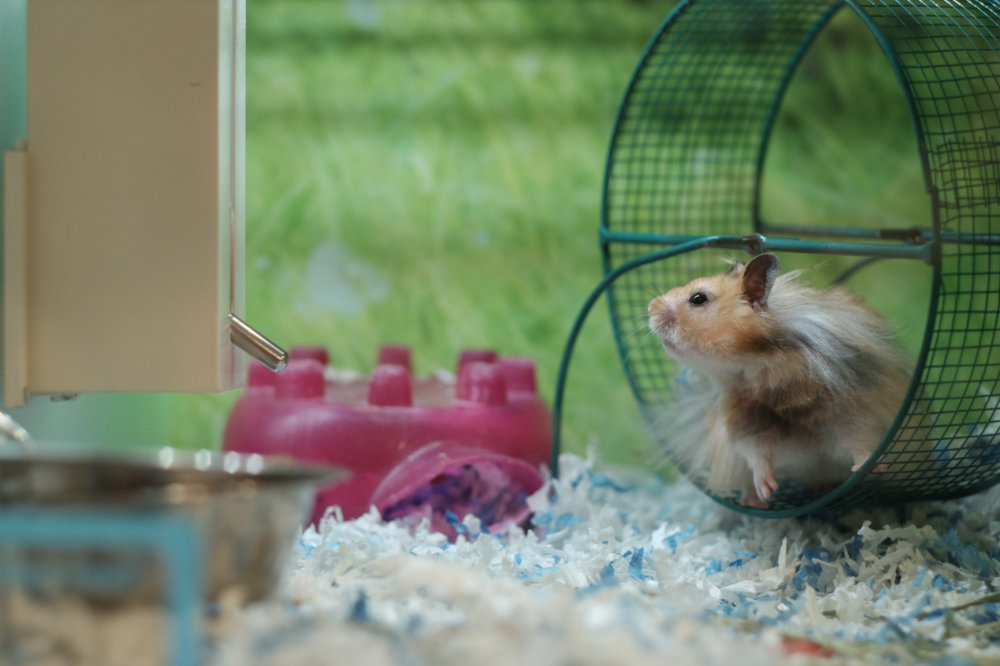
As important as it is to know what to look for in gerbil bedding, it’s equally crucial to be aware of the common pitfalls to avoid:
Incorrect Size of Bedding Particles: Opting for bedding with overly small particles can lead to problems such as choking or digestive blockages if the gerbil ingests it. Conversely, too large pieces can make it difficult for your gerbil to burrow and nest. Therefore, it’s essential to choose a bedding size that is safe and comfortable for your gerbil.
Using Scented Bedding: While scented bedding might seem like a good way to control odor, it can cause respiratory distress and allergies in gerbils. Always opt for unscented bedding to ensure the health and safety of your pet.
Using Bedding Materials That Could Be Harmful: Some materials, like pine or cedar shavings that are not kiln-dried, can emit harmful oils and cause health issues in gerbils. Similarly, materials that can easily mold when wet, such as corn cob bedding, can pose a risk. Always do your research to ensure the bedding material you choose is safe for your gerbil.
Conclusion
Selecting the right bedding is one of the most critical aspects of providing a healthy and enriching habitat for your gerbil. The right bedding not only ensures comfort and promotes natural behaviors such as burrowing and nesting but also plays a significant role in waste management and odor control.
Remember to keep your gerbil’s specific needs and behaviors in mind when choosing a bedding type and brand. Avoid common mistakes such as choosing harmful materials, using scented bedding, or opting for unsuitable particle size.
By committing to regular cleaning and maintenance, you’ll ensure your gerbil’s home remains a comfortable, clean, and safe place to live. Always be vigilant for signs that your gerbil’s bedding needs changing and remember that your pet’s comfort and health are paramount.
Ultimately, providing your gerbil with a suitable and clean environment will contribute greatly to their happiness and well-being, bringing you endless joy as a pet owner.

